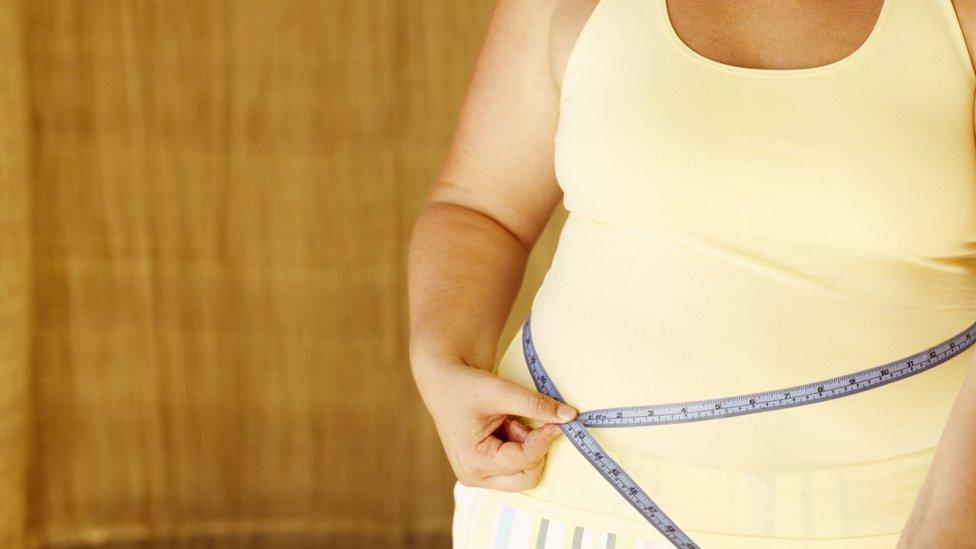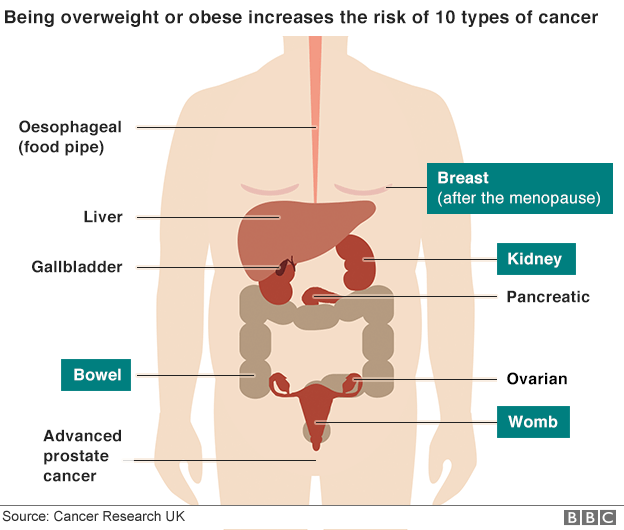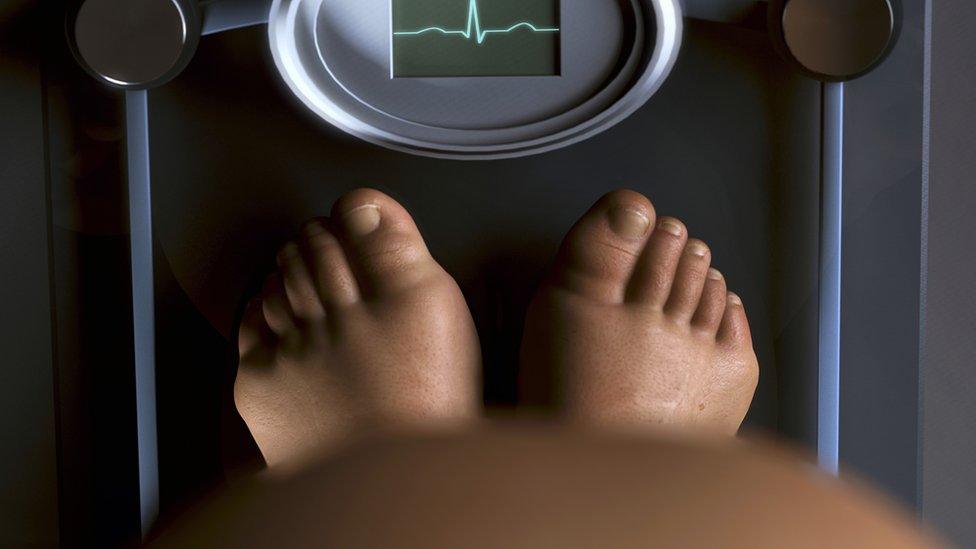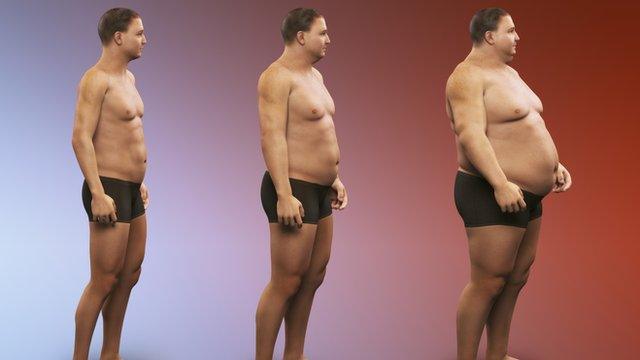Obesity link to cancer 'not well known by public'
- Published

Three-quarters of people are unaware being overweight increases the risk of developing 10 different types of cancer, Cancer Research UK has said.
It said the lack of understanding was "concerning" and criticised the government for its failed attempt to tackle childhood obesity.
Bowel, kidney, breast and womb cancer are most commonly linked to obesity.
Public Health England said it was working with the food industry to reduce sugar in its products.
There is evidence to show that carrying too much weight increases the risk of developing cancers, contributing to more than 18,000 cases of cancer each year in the UK.

Cancers highlighted in green are the four most common cancers linked to obesity in the UK
Cancer Research UK said its online survey of more than 3,000 people across the UK indicated the message about the health risks of being overweight had not got through to the general public.
Fewer than one-third knew of the link between obesity and breast or womb cancer, and more than half did not know pancreatic cancer was linked to obesity.
Research suggests 40% of womb cancers are linked to obesity.
However, there was better awareness of the link with bowel cancer and kidney cancer.
Number of cancer cases linked to being overweight or obese in the UK each year:
Bowel - 5,400 cases
Breast - 4,300
Womb - 2,900
Kidney - 2,400
But the survey found men were less likely than women to be aware of the increased risk of cancer caused by obesity and people from poorer backgrounds were less likely to know about the link.
With a quarter of adults in the UK being obese - defined as a BMI or body mass index, external of over 30 - and about 60% classified as overweight or obese - a BMI over 25 - eating a healthy balanced diet and taking regular exercise is key to helping people lose weight.
CRUK has 10 top tips for a healthy weight, external, which include eating smaller portions of food and choosing water to drink instead of sweetened juices or alcohol.

But Dr Helen Croker, a clinical research dietician at University College London, said losing weight was particularly hard when obese people faced stigma.
"Many experience weight discrimination, which is unhelpful and can lead to a lack of respect and poorer healthcare," she said.
Cancer Research UK said making the public more aware of the link between obesity and cancer was the government's responsibility and it should start by focusing on the health of the nation's children.
Alison Cox, director of prevention at CRUK, said: "The government acknowledges that marketing junk food to kids is a problem and has removed these adverts during children's programming.
"We also need to see these restrictions during family viewing time before 21:00 if we want to make a difference to children's health."
The latest figures show that one in five children starts primary school overweight or obese, and, at the age of 11, one in three are in this category.
Dr Alison Tedstone, chief nutritionist at Public Health England, said it had launched a programme to get the food industry to remove at least 20% of the sugar in their products by 2020.
"The link between obesity and cancer shows just how important it is to cut back on calories, sugar and saturated fat to maintain a healthy weight," she said.


How does being overweight contribute to cancer?
There are many possible factors that contribute to cancer risk include family history, age and lifestyle.
The link between obesity and cancer is still not completely clear, but there are three main theories:
Too much fat in the body causes the level of sex hormones, such as oestrogen, to rise. For women, after the menopause, fat becomes the main source of oestrogen, and in those who are overweight this can make cells multiply more quickly in the breast and womb, increasing the risk of cancer in these organs
Too much fat can cause levels of insulin to rise, which can tell cells to divide more rapidly
Obesity may lead to tissues becoming inflamed, which can in turn help the growth and spread of cancer

Aileen Campbell, minister for public health and sport in Scotland, said the Scottish government had committed to refreshing its own strategy on diet and engaging with the food industry on how to offer healthier choices to consumers.
But she said there was disappointment that the UK government did not commit to banning junk food advertising before 9pm on TV.
"Broadcasting is reserved to the UK government and we have consistently called on them to take this step, which we believe would greatly reduce children's exposure to the marketing of unhealthy food and drink."
The Scottish government launched a £100m cancer strategy this year to improve the prevention, diagnosis and treatment of the disease.
- Published7 January 2016

- Published14 August 2014
